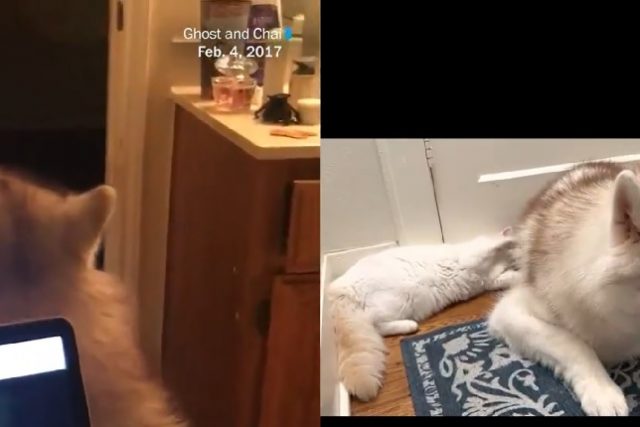This is the story of a cloned pet. A woman’s cat named Chai died suddenly following an accident upon swallowing a piece of a wrapper that stuck in her intestines.
This was in 2017 and the owner did not know what to do. After some time following the dead, Anderson remembered a chat she has with a room mate about a Texas-based ViaGen Pets. This is one of the companies globally that clones pets.
She called them the following day. She spent some $25,000 and now it has been five years later and Anderson has a 6-months -old clone of Chai.
The new pet is known as Belle and it is identical to Chai. The pet has the deep-blue eyes as well as the fluffy white coat.
The two cats have some features in common such as sleeping with their bodies stretched out against their owners – Anderson. However, that is about it. The similarities end at that point.
It is agreed that some clones carry the same genetic material but they are not the same animal. It is a fact that the two animals do not share the same experiences or memories.
There is a small group of people around the world who do not mind spending a fortune on clone pets.
The practice is slowing spreading but there are unanswered questions on whether this is ethical or not.
The process of cloning starts with some cells from the pet’s tissue, mostly the belly or eat, being placed into a mixture of enzymes to remove the DNA.
Secondly, the scientists extract unfertilized egg from another donor animal. The egg’s nucleus is extracted using a tiny needle. This is swapped with the nucleus of the pet’s cells.
The new egg now carries the pet’s DNA and it is now mixed with nutrients found in the uterus. They are cultured until they develop into embryos to be implanted into a surrogate.
The surrogate carries the pregnancy to term and a clone is born. That is how it works.
The challenge is that cloning does not always work successfully. This means that not all embryos are viable. This means that scientists may end up using several surrogates as well as donor animals to achieve success.
Since cloning is not a natural process, sometimes the embryos may die just after birth, or a miscarriage happens.
“I’ve always told people that I cloned not because I wanted to bring my cat back to life, but because I wanted to carry on a piece of her, and I think it’s definitely really comforting to have that in Belle,” Anderson said.
“Even though they’re different cats, there’s still a piece of Chai in her. So it’s comforting in a way that I don’t really know how to explain.”
ViaGen was established in 2002 as a livestock cloning company. They have successfully duplicated pigs, cows and horses. They started preserving pet DNA in 2002 but started cloning cats and dogs in 2015. They were inspired by a South Korean company which was getting a lot of success in doing cloning.
“We have clients that have stored cells with us for 17 years and are cloning now,” Rodriguez said. “So you’ve got a puppy now that was from a dog that was alive 25 years ago, which is a really incredible thing to think about.”
“I don’t think it’s something that’s ever going to be very commonplace where every dog is cloned, but I think it’s going to definitely increase and become more popular as the years go on,” she said.
“We counsel our clients and make sure they understand what they’re getting into,” she said. “And I think the easiest way that we can put it is that it’s an identical twin – just born at a different time.”
“I don’t think that you ever stop missing someone that you love,” she said. “Of course I miss her every day. I think over time that’s dulled down, but that’s just part of grief and how that works.”
GOT a story? Contact Kerosi Dotcom on EMAIL info@kerosi.com


